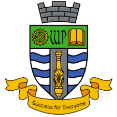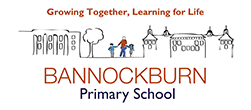Assessment Overview
Overview
At Woolwich Polytechnic School for Boys, we aspire for all pupils to excel, both academically and personally. Our planned curriculum enables our pupils to know more, understand more and do more, empowering them to become leaders of their future lives. Our use of assessment underpins teachers’ ability to evaluate how well pupils are progressing against our planned curriculum and informs future teaching.
Key Principles of the assessment system:
-
We assess what has been taught.
-
We value both summative and formative assessment equally.
-
We recognise the variability in knowledge and skills across subject areas and therefore, design assessments which are appropriate at a subject level.
-
We act decisively with the data which assessments provide.
-
We use assessment in a way which is unnecessarily burdensome to staff.
FORMATIVE ASSESSMENT
The purpose of formative assessment is to improve all student performance through the identification and correction of mistakes, misconceptions and gaps in knowledge. Teachers at Woolwich Polytechnic School for Boys make frequent, interactive assessment of student understanding. In doing so, teachers are able to respond to individual student need to enable all students to access the highest possible standards in their learning. We aim to teach responsively in our classroom, regularly checking understanding to adapt to the needs of the class. We provide specific and directed feedback that is essential to move students on in their understanding of particular concepts. Teachers aim to not only provide feedback that improves the understanding of content, but also develop their own approaches to learning. As such, feedback allows students to self-regulate and engage in metacognitive thought to become knowledgeable and proficient learners.
Our approach to Formative Assessment:
-
All work produced by students – both verbal and written contributions – will be used by teachers to assess the learning that has taken place.
-
Teachers plan for assessment throughout their lessons, and in doing so identify misconceptions and address these appropriately. Teachers aim to immediately address misconceptions that have been discovered, but also forward plan tasks and activities that will strengthen this correction at suitable points within the curriculum.
-
Teachers ensure that their extensive subject pedagogical knowledge allows for skilful navigation of misconceptions without narrowing of the curriculum.
-
Teachers plan in opportunities to encourage self-reflection and response to students’ own performance.
-
Teachers plan to assess the understanding of specific content that has been taught, but also plan larger pieces of work/ performances that combine several components from a series of lessons.
In lessons, teachers formatively assess pupils through a range of methods, including:
-
Quizzes (weekly for core/bi-weekly for non-core)
-
Questioning
-
Use of mini whiteboards
-
Reviewing pupil completion of work
-
Peer assessment or self- assessment
-
Live marking
-
Exit tickets.
FEEDBACK
Formative assessment and feedback go hand in hand and are not considered in isolation. At Woolwich Polytechnic School for Boys, our approaches to feedback are varied and take many forms, depending on the subject. Whilst individual written feedback can be effective, often this can be time consuming. We recognise and act on the findings from the Independent Workload Review Group and want to reduce onerous tasks where the hours spent marking do not have the commensurate impact on student progress.
We also follow guidance on the impact of verbal feedback in helping students to make progress, whilst also acknowledging the benefit of time-efficiency when compared to some forms of written feedback.
Our approaches to feedback:
-
Students receive verbal feedback in every lesson through effective teacher monitoring and checking for understanding.
-
Students regularly review their work to encourage assessment of own performance.
-
All feedback is followed by prompt practice that builds on student knowledge (not just correcting work but building on these tasks).
-
Not all literacy errors will always be addressed but teachers will aim to provide feedback on common spelling and grammar misconceptions, particularly of subject specific key terminology. This is also, of course, dependent on the subject.
-
Feedback is received on planned independent tasks, depending on the subject. A wide range of methods are adopted by staff to provide effective feedback, without the need for extensive book marking. These include whole class feedback, individualised feedback, live marking/ modelling and self-regulated feedback.
SUMMATIVE ASSESSMENT
Key Stage Three
Twice an academic year (January and June), pupils sit a summative assessment in all subject areas in timed exam conditions. The design of this assessment is cumulative in nature and thus assesses the progress pupils have made in their learning over an extended period of time.
Summative assessments are supported by a rigorous process of quality assurance during the design process as well as standardisation and moderation systems following the assessment. This contributes to the accuracy and validity of the data which it provides.
The data from summative assessments is used to track pupils’ progression pathway against an expected trajectory defined by prior data and key stage expectations.
Key Stage Four:
Summative assessment takes place during exams weeks: years 11, 12 and 13 have two periods of compulsory Pre-Public Exams (PPEs) in autumn and spring terms, leading up to final exams in summer term, but these are supplemented by Walk and Talk Mocks (where teachers talk through how to answer the exams and students apply simultaneously) and repeat PPEs for those students who fall short. Years 7 to 10 have exams weeks in summer term where they sit exams. Throughout teaching weeks, however, teachers frequently assess through testing and exams.
In years 10 to 13, summative data is based upon exam conditions assessments and reported in data drops every term; these are also moderated by heads of department.
Data provided every held term is also scrutinised by Raising Standards Leaders (one assigned for each year group). RSLs chair weekly Raising Attainment and Progress meetings and focus upon students who are not making good progress, discuss blocks and institute actions to mitigate these.
Aims of Reporting at Woolwich Polytechnic:
Summative assessment data is recorded on Departmental tracking sheets. Teaching staff record on Bromcom this data which is reported to parents/carers twice an academic year.
At KS4, years 10 to 11, current grades and predicted end of year 11 grades are reported to parents/carers as well as attendance, behaviour points, achievement points and punctuality based on what teaching staff record on Bromcom. These reports are provided every term and discussed with parents on ARD, once every term: to ARDs are set aside for tutors and for subject teachers for years 9 and 10. In Year 11, instead of ARDs, we provide parents’ evenings: one for tutors early in autumn term and two for subject teachers, in late autumn term and late spring term.
At KS5, years 12 and 13, current grades and predicted end of A2 grades are reported to parents/carers, along with written statements as to where the students’ strengths and areas for development are. These reports are provided every term and discussed with parents in parents’ evening once every term: parents’ evenings are set aside for subject teachers and for tutors.





